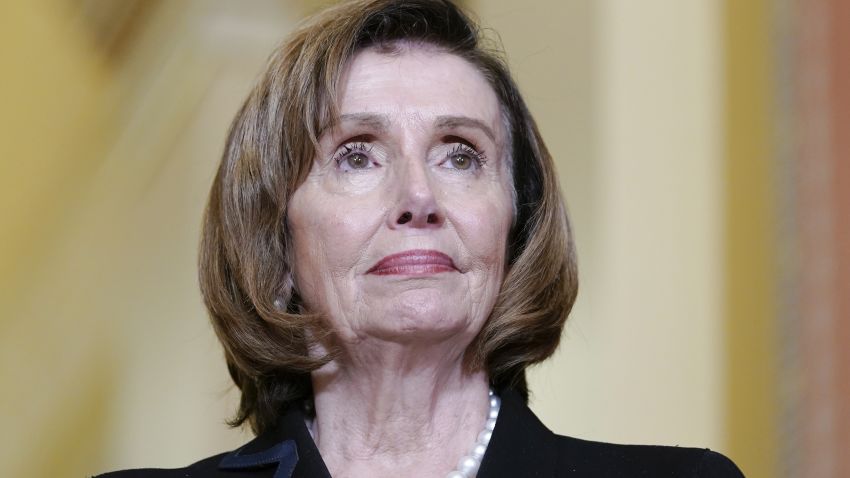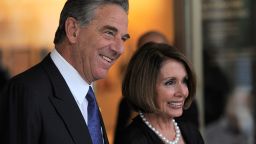Editor’s Note: Michael D’Antonio is the author of the book “Never Enough: Donald Trump and the Pursuit of Success” and co-author, with Peter Eisner, of the book “High Crimes: The Corruption, Impunity, and Impeachment of Donald Trump.” The opinions expressed in this commentary are his own. View more opinion on CNN.
Donald Trump Jr. must have thought he was being funny. After a man invaded House Speaker Nancy Pelosi’s home in San Francisco and beat her 82-year-old husband with a hammer, former President Donald Trump’s eldest son posted a photo of a hammer and men’s briefs on social media. “I’ve got my Paul Pelosi Halloween costume ready,” the caption read, apparently a reference to an erroneous report, since corrected, that the attacker was in his underwear.

That such depravity would come from Trump’s son is no surprise. It affirms that Trump Jr. is a chip off the old block.
For years, the elder Trump has voiced his support for violence. In 2018, he called a GOP candidate who attacked a journalist “my kind of guy.” In the wake of protests over George Floyd’s death in 2020, he tweeted, “When the looting starts, the shooting starts,” reviving racist remarks from the 1960s.
As recently as October 22, the former President reveled a crowd by joking that reporters could be forced to reveal confidential sources if judges would put them in jail, where they’ll become “the bride of another prisoner.”
The laughter that followed, which was audible, provokes two thoughts: Bigots seemed to be well-represented at the rally, and they were willing to tolerate the kind of talk that no other former President would ever offer. Add his son’s nastiness — why not joke about an elderly man whose skull was fractured? — and the aberrant ways of the Trumps become obvious.
Worse is that under Trump’s leadership others are following suit. A state senator from Arizona tweeted the image of a bloody hammer after the attack. Virginia Gov. Glenn Youngkin tut-tutted about how violence is bad, in general, at a campaign rally for a GOP candidate before he mocked the House speaker, saying, “We’re going to send her back to be with him in California.”
Despite reports that the attack suspect posted conspiracy theories about the 2020 election and the January 6 attack, Sen. Ted Cruz retweeted the claim that he is “a hippie nudist from Berkeley,” adding the word, “truth.”
Nevertheless, some Republicans spoke out about Donald Trump Jr. making fun of the attack. Retiring Rep. Fred Upton of Michigan, one of 10 House Republicans who voted to impeach the elder Trump over the January 6 insurrection, called the online joke “disgusting.” “Words matter,” Upton told CNN in a phone interview.
The former President didn’t address the attack publicly until an interview on Monday, telling Spanish-language outlet Americano Media it was “a terrible thing” while criticizing rising crime in US cities.
The hostility expressed by Trump sometimes comes with caveats that allow him to attempt to deflect responsibility. (Examples include “I’ve heard that” and “A lot of people tell me.”) But Trump may be pushing us toward a new low.
A debate over rhetoric and violence has resumed in the aftermath of last week’s attack. Most Republicans generally hide behind the impossibility of divining the impact heedless leaders such as Trump have on vulnerable minds. But much research points to the connection between heated rhetoric and violent acts.
A landmark essay from the 1990s called “Defining Deviancy Down” had disturbing foresight about the consequences of behavior such as Trump’s coarse and hateful speech.
Published by Sen. Daniel Patrick Moynihan, himself a sociologist, it argued that societies can only police a certain level of deviance. As that resource is exhausted, what was once unacceptable is now tolerated. “We are,” as the late Moynihan put it, “getting used to a lot of behavior that is not good for us.” Those words have rarely been truer.





